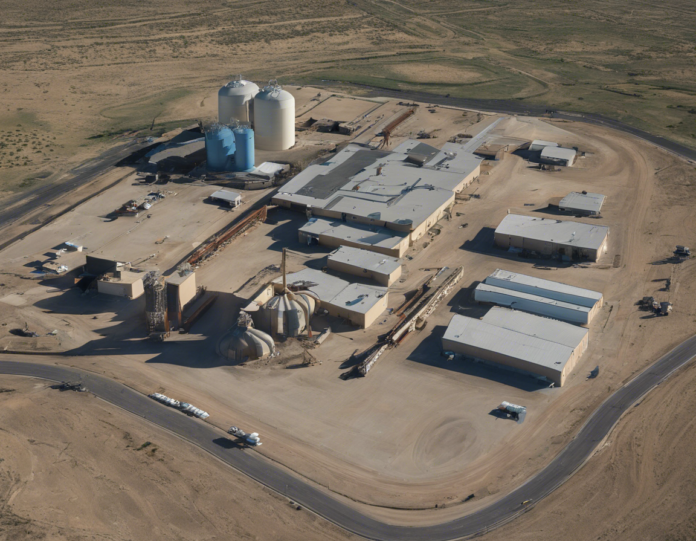Introduction
The Pecos Valley in the United States offers a diverse range of production opportunities across various industries, from agriculture to energy. This region, located in New Mexico and Texas, is rich in natural resources and has a growing economy that presents numerous prospects for businesses and investors. In this article, we will delve into the production opportunities available in the Pecos Valley and explore the key sectors that drive economic growth in the region.
Agriculture
Agriculture is a significant industry in the Pecos Valley, with fertile lands and a favorable climate for crop cultivation. Cotton farming is a major agricultural activity in the region, with farmers producing high-quality cotton for textiles and other products. Additionally, alfalfa, sorghum, and vegetables are also commonly grown in the area, contributing to the region’s agricultural diversity.
Livestock production is another important sector in the Pecos Valley, with cattle ranching being a longstanding tradition. Cattle are raised for meat production, and the region’s ranches play a crucial role in supplying beef to domestic and international markets.
Water management is a key consideration for agriculture in the Pecos Valley, given the region’s semi-arid climate. Irrigation systems and water conservation practices are essential for maintaining agricultural productivity in this area.
Energy
The Pecos Valley is rich in energy resources, particularly oil and natural gas. Oil production in the region has seen significant growth in recent years, driven by advances in drilling technologies such as hydraulic fracturing. The development of shale formations has unlocked vast reserves of oil and gas, making the Pecos Valley a major hub for energy production in the United States.
The region also has potential for renewable energy development, with ample sunlight for solar power generation and strong winds for wind energy production. These resources present opportunities for clean energy projects that can contribute to a more sustainable energy mix in the region.
Energy infrastructure is essential for supporting production activities in the Pecos Valley, including pipelines, refineries, and power plants. The region’s strategic location and transportation networks make it a key player in the energy sector, facilitating the movement of resources to markets across the country.
Manufacturing
Manufacturing is a growing sector in the Pecos Valley, with businesses producing a variety of goods for local consumption and export. The region’s proximity to major markets such as Mexico and California offers logistical advantages for manufacturers looking to distribute their products efficiently.
Food processing is a prominent industry in the area, with companies converting agricultural produce into packaged goods for retail and wholesale markets. Meat processing, canning, and dairy products are some of the key subsectors within the food processing industry in the Pecos Valley.
Advanced manufacturing is also on the rise in the region, with companies investing in technology and automation to enhance productivity and product quality. Industries such as electronics, aerospace, and automotive are seeing growth in the Pecos Valley, driven by innovation and skilled workforce.
Tourism
The Pecos Valley is home to picturesque landscapes, historic sites, and cultural attractions that draw tourists from near and far. Tourism is an important economic driver in the region, supporting businesses in hospitality, recreation, and entertainment.
Outdoor recreation is a popular activity in the Pecos Valley, with opportunities for hiking, fishing, camping, and wildlife viewing in the area’s natural reserves and parks. Tourists can explore the diverse terrain of the region, from desert plains to mountain ranges, offering a range of outdoor experiences.
Historical sites also attract visitors to the Pecos Valley, with missions, museums, and cultural festivals showcasing the rich heritage of the region. The blend of Native American, Spanish, and Western influences adds to the allure of the Pecos Valley as a cultural destination.
Opportunities for Growth
The Pecos Valley presents ample opportunities for businesses and investors looking to tap into its potential for economic growth. Key areas for development include agriculture, energy, manufacturing, and tourism, each offering unique prospects for investment and expansion.
Strategic partnerships with local organizations and government agencies can help businesses navigate regulatory requirements and access resources to support their growth initiatives. Collaborating with industry associations and trade groups can also provide valuable networking opportunities and market insights for companies operating in the Pecos Valley.
Innovation and sustainability are driving forces in the region’s economic development, with businesses embracing new technologies and practices to enhance efficiency and reduce environmental impact. Investing in research and development and green initiatives can position companies for long-term success in the Pecos Valley.
Workforce development is crucial for businesses operating in the Pecos Valley, with a focus on training and upskilling employees to meet the demands of a rapidly evolving economy. Partnering with educational institutions and vocational programs can help companies build a skilled workforce that is equipped to drive innovation and growth in the region.
Conclusion
The Pecos Valley offers a wealth of production opportunities across various industries, from agriculture and energy to manufacturing and tourism. With its natural resources, favorable business climate, and strategic location, the region is poised for continued economic growth and development. Businesses and investors looking to capitalize on the potential of the Pecos Valley can explore the diverse sectors that drive its economy and leverage partnerships, innovation, and workforce development to achieve success in this dynamic region.
Frequently Asked Questions (FAQs)
- What are the primary industries in the Pecos Valley?
-
The primary industries in the Pecos Valley include agriculture, energy, manufacturing, and tourism.
-
How important is water management in agriculture in the Pecos Valley?
-
Water management is crucial for agriculture in the Pecos Valley due to its semi-arid climate, requiring irrigation systems and conservation practices.
-
What are the major energy resources in the Pecos Valley?
-
The Pecos Valley is rich in oil and natural gas resources, with growing potential for renewable energy sources like solar and wind power.
-
Which manufacturing sectors are growing in the Pecos Valley?
-
Food processing, advanced manufacturing (electronics, aerospace, automotive), and technology-driven industries are on the rise in the region.
-
What are some popular tourist activities in the Pecos Valley?
- Outdoor recreation, historical site visits, cultural festivals, and wildlife viewing are popular tourist activities in the Pecos Valley.








